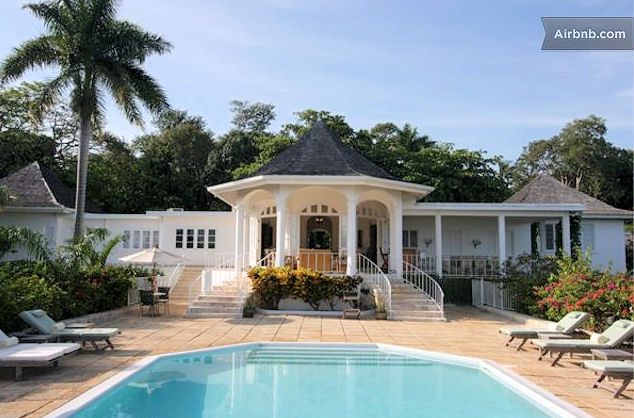(Jamaica Observer) Earlier this week it was reported that Omar Robinson, president of the Jamaica Hotel and Tourist Association (JHTA), expressed that Airbnb operators should be asked to pay hotel accommodation tax. The statement from the JHTA president has sparked intense debate among not just tourism professionals but the general public and some of these discussions spilled over into the media and social media this week.
Some see the call from Robinson — who represents hoteliers through the JHTA — as an effort by the tourism industry’s status quo to reduce competition from the relatively new vacation rentals sector that has grown phenomenally in recent years. There are those who also see such a proposal as an unnecessary burden on small business owners.
Twitter users weighed in on the controversy.
“So the @JHTAJamaica and the hotels in #Jamaica, which largely foreign owned, are now advocating for more taxes on the small-man who has a 1-room on @AirBnB. This is a wicked call. #TalkTheTruth,” posted @likle_wiked on Twitter.
“Tourism in Jamaica will never be over regulated,” tweeted @isntitironick expressing an opposing view. “Airbnbs are a business so they should pay some form of accommodation tax.”
However, it was Ingrid Riley, a well-known social media influencer in Jamaica with more than 8000 Twitter followers who gave a far more comprehensive input to the debate.
Riley, often described as a tech guru, is known for her commentaries and blogs on various aspects of business technology. In 2013 she was named by Caribbean Journal as one of eight Jamaicans in its ‘Caribbean’s Most Interesting People for 2013’ list, which included the likes of singer and The Voice’winner Tessanne Chin, renowned record-breaking athlete Usain Bolt, and prime minister Andrew Holness, who was the opposition leader at the time.
“The Airbnb platform brought back community tourism from the dead and put cash back in local communities and the micro-entrepreneurs there,” Riley posted to both her Facebook and Twitter accounts. “The trickle-down foolishness that previously prevailed in the industry is dead and will never return.”
Earlier this year it was reported that in Jamaica a typical host in 2018 earned US$2,600 from Airbnb. The country experienced 89,500 Airbnb guest arrivals in that year and the data also showed that Jamaica had 4,100 hosts and 7,600 listings on the travel platform.
“…the market will respond to those providing for its unique needs and tastes and frankly, there are quite a few Jamaican tourism brands that are out of touch with travel trends — locally, regionally and globally,” Riley added. “So taxing what is growing as a strategy for the status quo holders to buy time to innovate is so archaic, yet so damn typical with Jamaican businesses who feel entitled to market share, they have long held. Let the Airbnb properties have their time in the sun!”
The social media influencer went on to elaborate on the unique market niches that, in her opinion, are being better served through platforms such as Airbnb.
“Maybe the traditional hotel sector can put some genuine effort into targeting the LGBTQ, African-American, sports travellers to name a few and stop complaining,” she emphasised. “The days when a single JTB ad is used to put bums in seats and heads in beds are gone.”
In May of this year, Minister of Tourism Ed Bartlett was reported as saying, “We are not going after direct taxation to impact the hosts, who are, by and large, the small entrepreneurs of our country who are making the inclusiveness of tourism something real, but rather, we are looking at a broader picture to see how Airbnb itself can partner with Jamaica to provide the necessary resource support for the many projects we have, particularly in destination-assurance strategies which are being developed.”
But this week it was reported that the minister disclosed that the matter of the taxation of Airbnb properties is now being discussed, as well as the implementation of operating standards on that sector of the tourism industry through the Tourism Product Development Company.
On the issue of standards, Riley also believes the government should refrain from interference.
“As for the concern over minimum health and safety standards, markets determine that,” she wrote in a social media post. “The Airbnb platform has a mechanism that determines which hosts stay or go, based on the very transparent nature of ratings and feedback. Like I said before, Let the Airbnb properties have their time in the sun! Leave them alone.”










